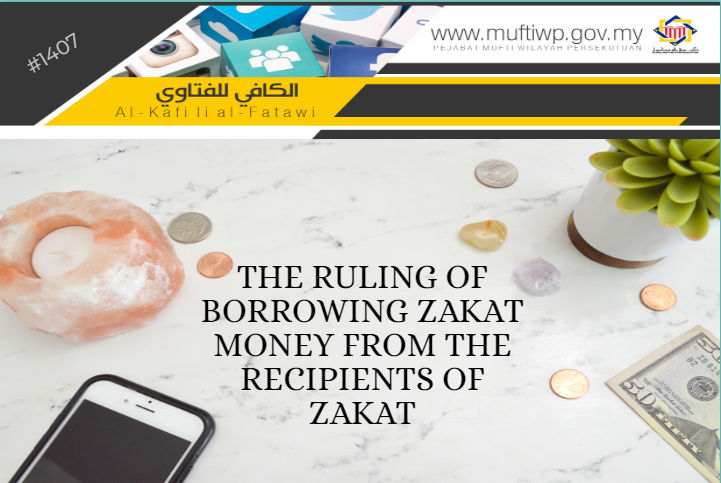Question:
Assalamualaikum w.b.t,
A man wants to borrow money from his friend. The friend uses his zakat money to help him. The man does not know that the money is from zakat. The friend thought that if the man pays him back, then the money will be given to those in need. If not, then the zakat will be considered given to the man. Is this method permissible?
Answer:
Waalaikumussalam wbt,
Alhamdulillah, praise and thanks to Allah for the countless blessings He has blessed us all with. Blessings and salutations to the Prophet Muhammad PBUH, his wives, his family, companions and all those that follow his teachings to the day of judgement.
Zakat is considered complete once it is received by its recipient. If the recipient lends his zakat property to others or gives it as sadaqah, then it is a noble act from he himself and not a direct good deed of the first zakat payer. This is because, once the zakat is received, then tamlik (complete ownership) already took place. Hence, the receiver has the right of tasarruf (act freely) upon the property without contradicting the Sharia law.
The dalil (evidence) is the verse of Allah SWT in the Quran:
إِنَّمَا الصَّدَقَاتُ لِلْفُقَرَاءِ وَالْمَسَاكِينِ وَالْعَامِلِينَ عَلَيْهَا وَالْمُؤَلَّفَةِ قُلُوبُهُمْ وَفِي الرِّقَابِ وَالْغَارِمِينَ وَفِي سَبِيلِ اللَّـهِ وَابْنِ السَّبِيلِ ۖ فَرِيضَةً مِّنَ اللَّـهِ ۗ وَاللَّـهُ عَلِيمٌ حَكِيمٌ
Zakah expenditures are only for the poor and for the needy and for those employed to collect [zakah] and for bringing hearts together [for Islam] and for freeing captives [or slaves] and for those in debt and for the cause of Allah and for the [stranded] traveler - an obligation [imposed] by Allah. And Allah is Knowing and Wise.
Surah al-Taubah (60)
According to scholars, the alphabet ‘lam’ before stating the asnaf in the stated verse is ‘lam al-tamlik’ which holds the meaning of ownership. Refer: al-Bayan (3/405) by Imam Yahya al-Imrani; al-Majmu’ by Imam al-Nawawi (6/185).
Zakat is a form of sadaqah (charity). Property from this sadaqah owned by the poor is of his right and can be used for the purposes permitted by Syarak. Imam al-Nawawi said in the issue of managing meats from sacrifice (qorban) which are given as sadaqah:
وَلَا يَجُوزُ تَمْلِيكُ الْأَغْنِيَاءِ مِنْهُمَا، وَإِنْ جَازَ إِطْعَامُهُمْ. وَيَجُوزُ تَمْلِيكُ الْفُقَرَاءِ مِنْهُمَا، لِيَتَصَرَّفُوا فِيهِ بِالْبَيْعِ وَغَيْرِهِ. بَلْ لَوْ أَصْلَحَ الطَّعَامَ وَدَعَا إِلَيْهِ الْفُقَرَاءَ
“It is impermissible for the rich to own (meat of qorban and hadyu) even if they are permitted to eat them. However, they are both (ownership of the meat and eat them) permissible for the poor, even if they use them for the purpose of trade or others. In fact, (it is also permissible) if they cook the meat as a dish that they serve to the other poor people.”
Refer: Raudhah al-Tolibin (3/222)
Based on the above explanation, it is clear that it is permissible for the recipients of zakat to lend or give their zakat property to others as sadaqah. The second receiver will not be considered as the recipient of zakat. This is because, when a property is transferred from a payer of zakat to the recipient, then the ownership of it has completely changed too. A property which ownership has completely changed is free to be used by the new owner according to syarak’s guidelines. Hopefully, this explanation will give us all understanding and enlightenment.


